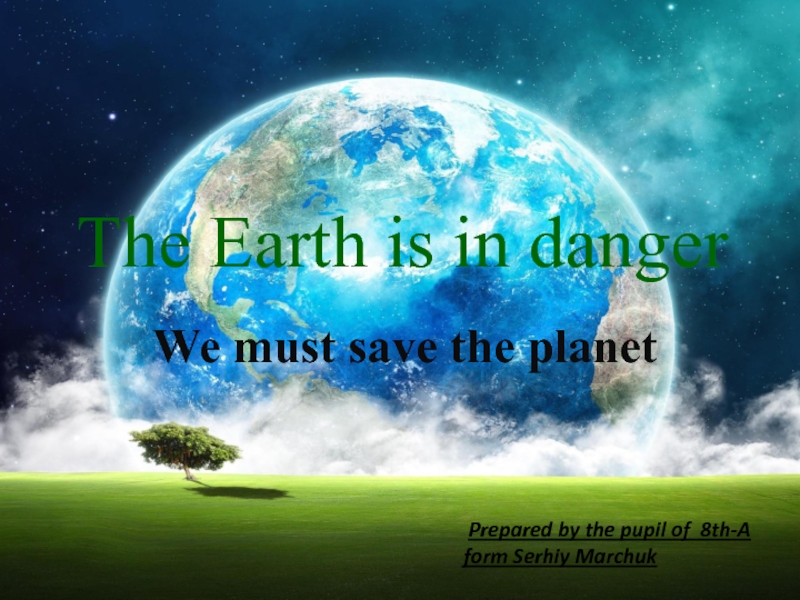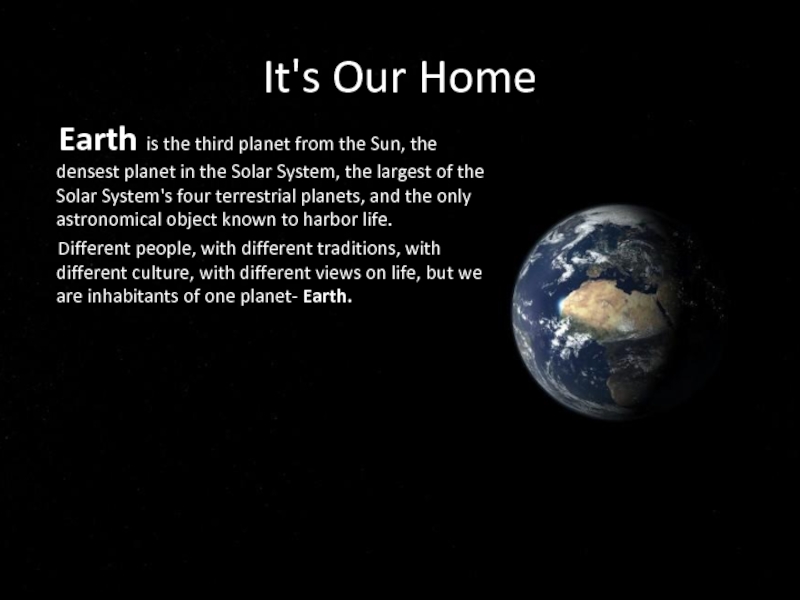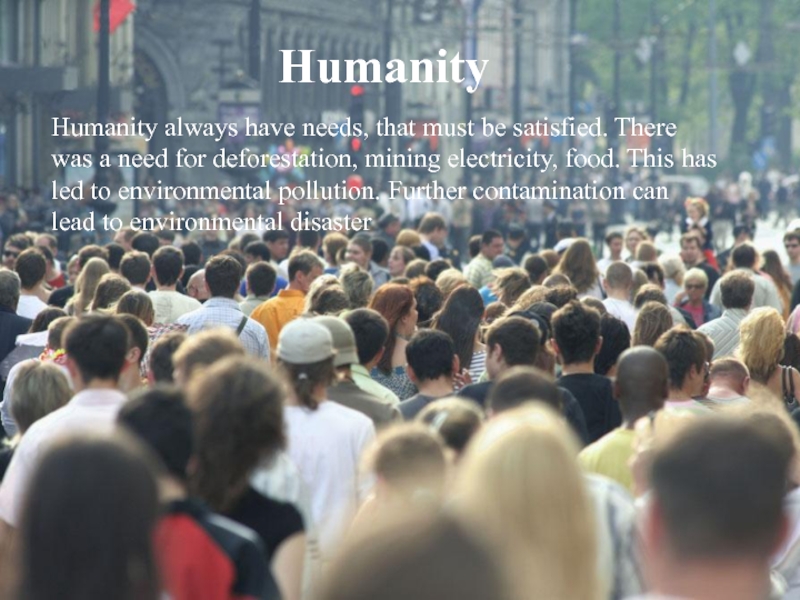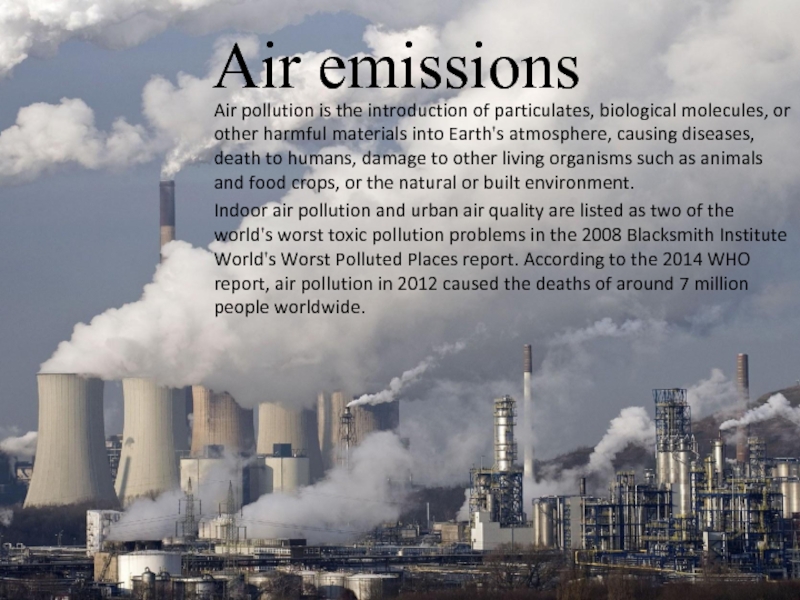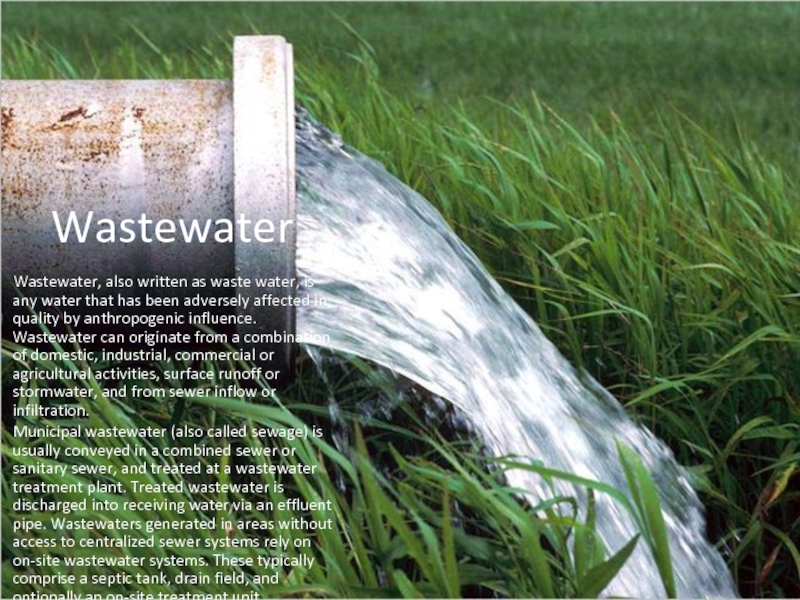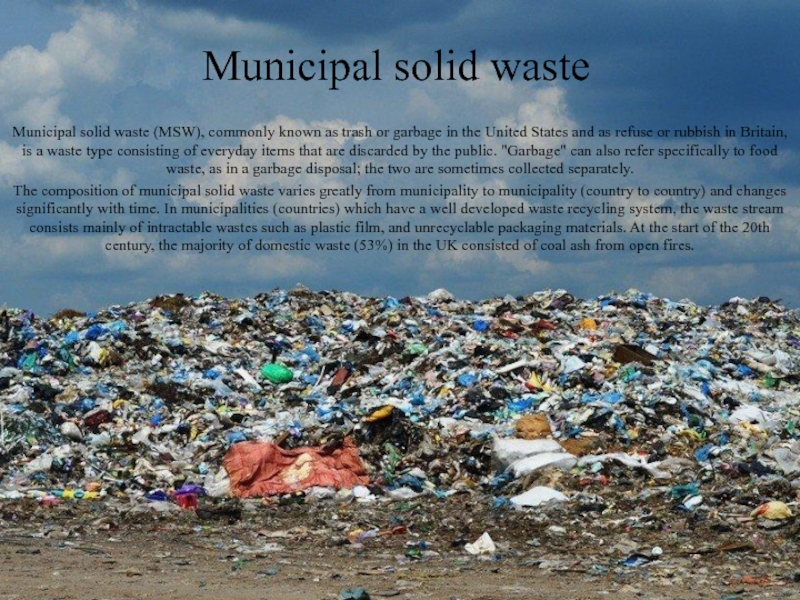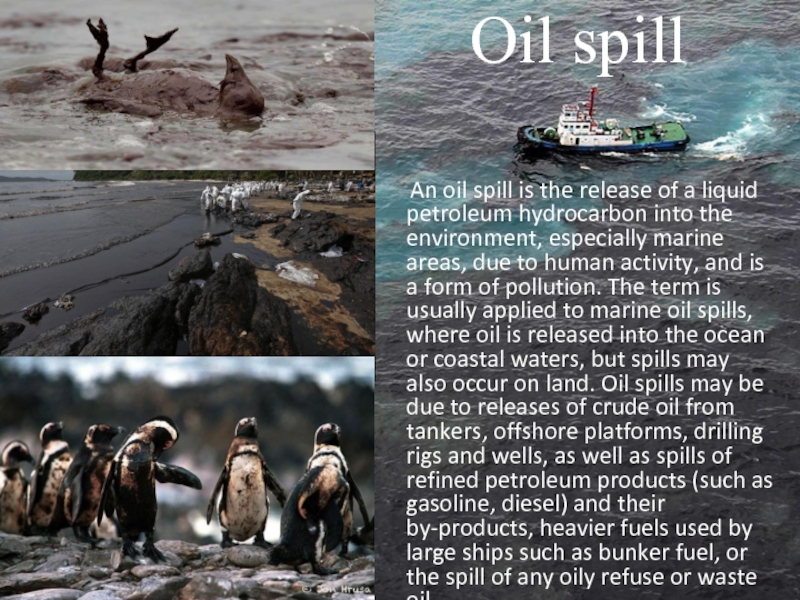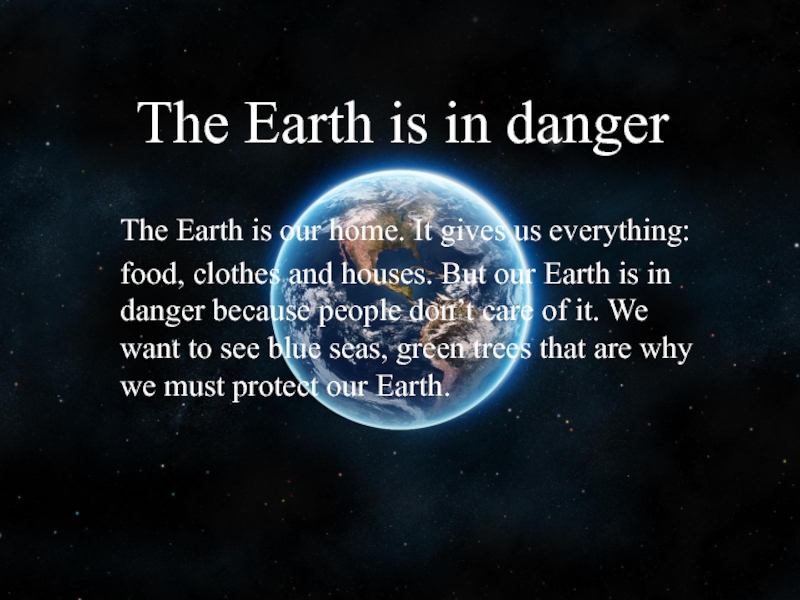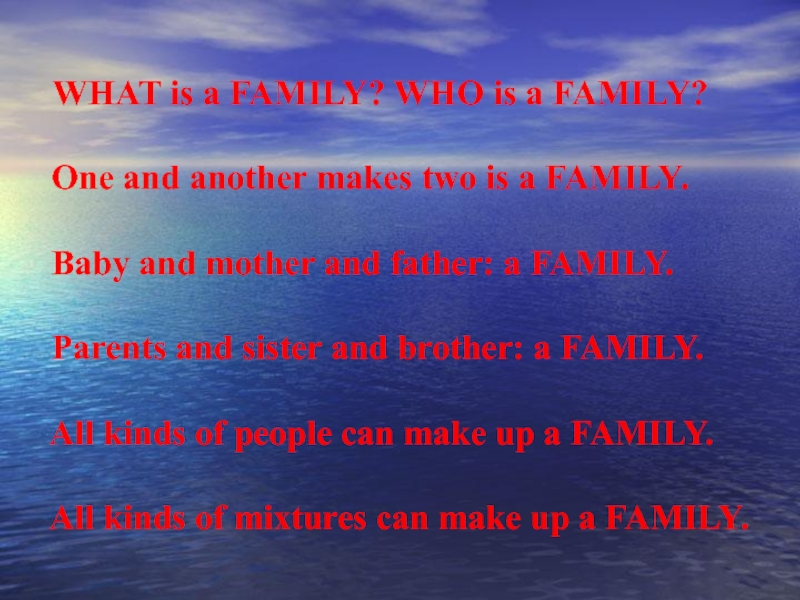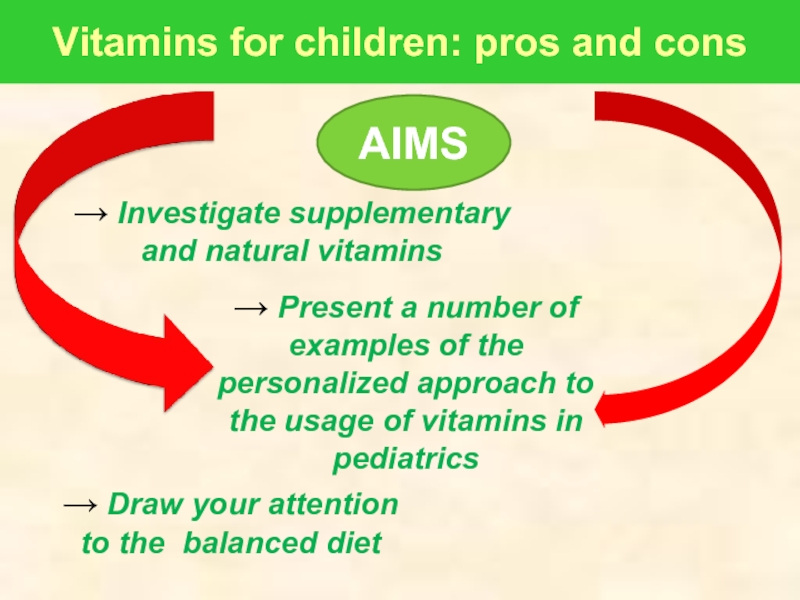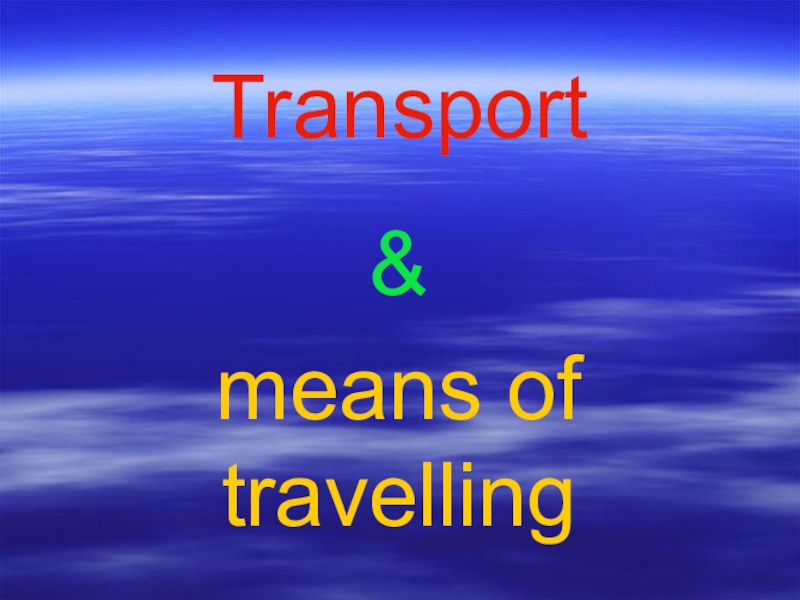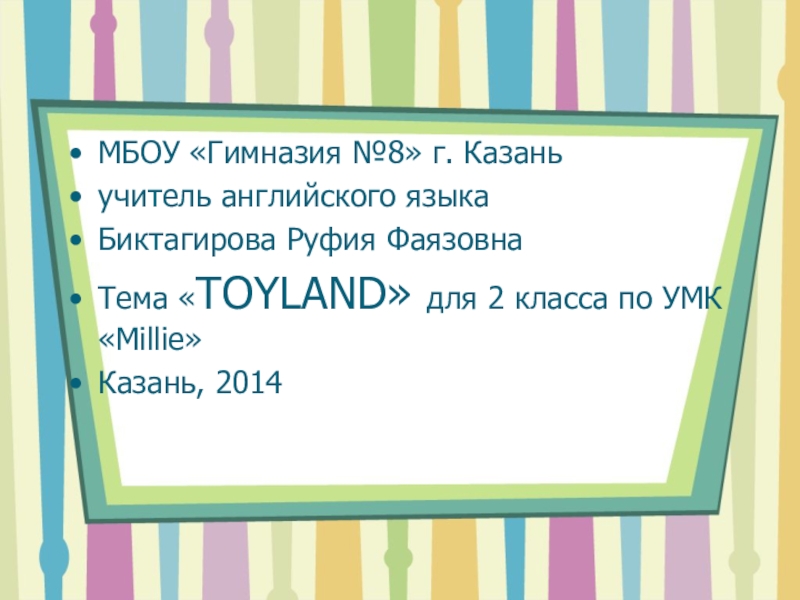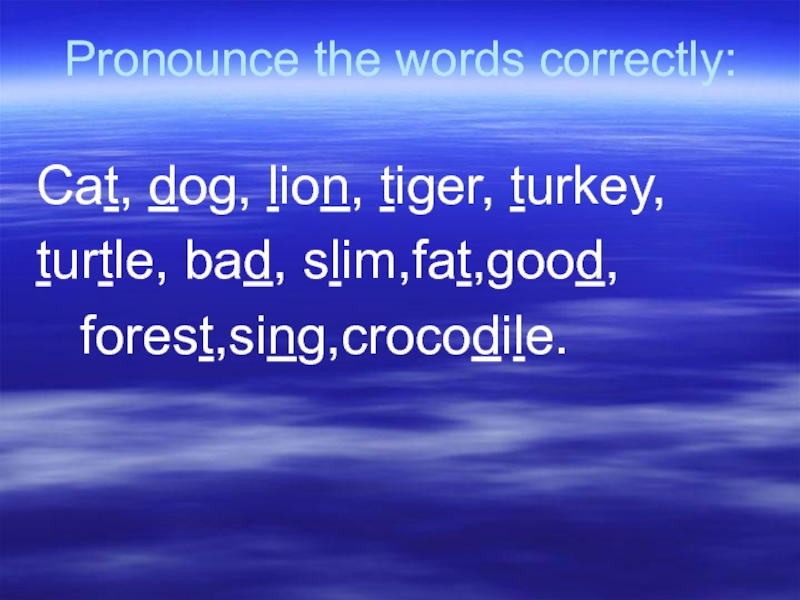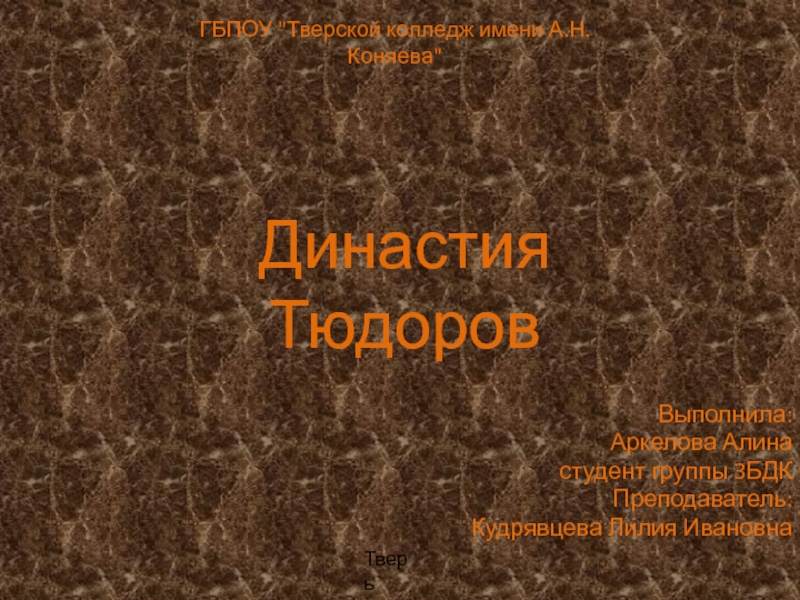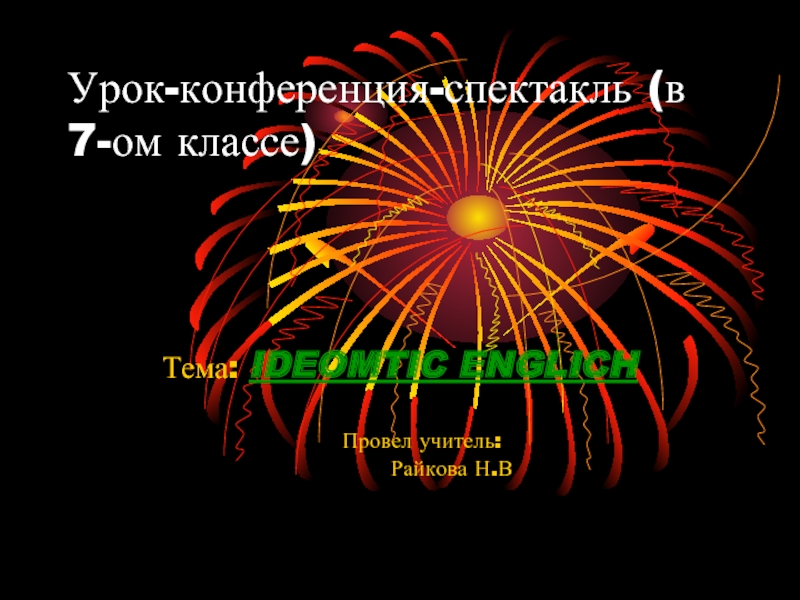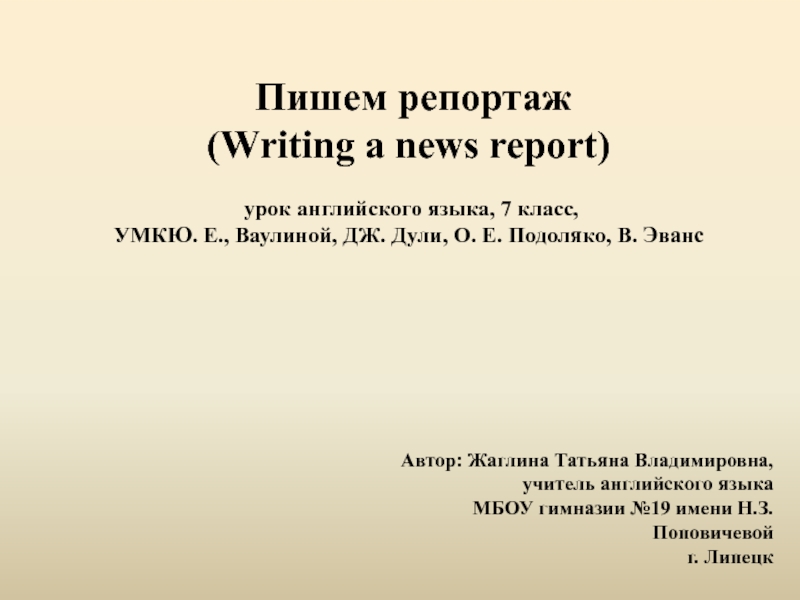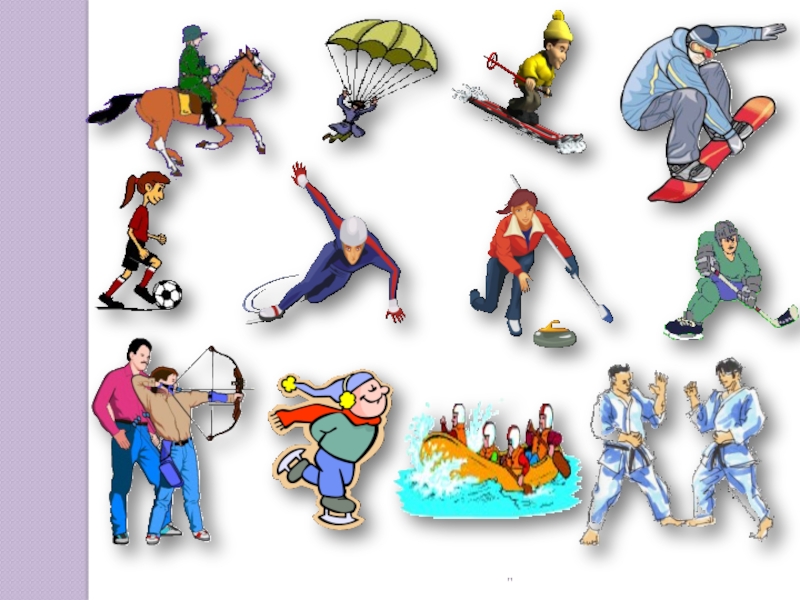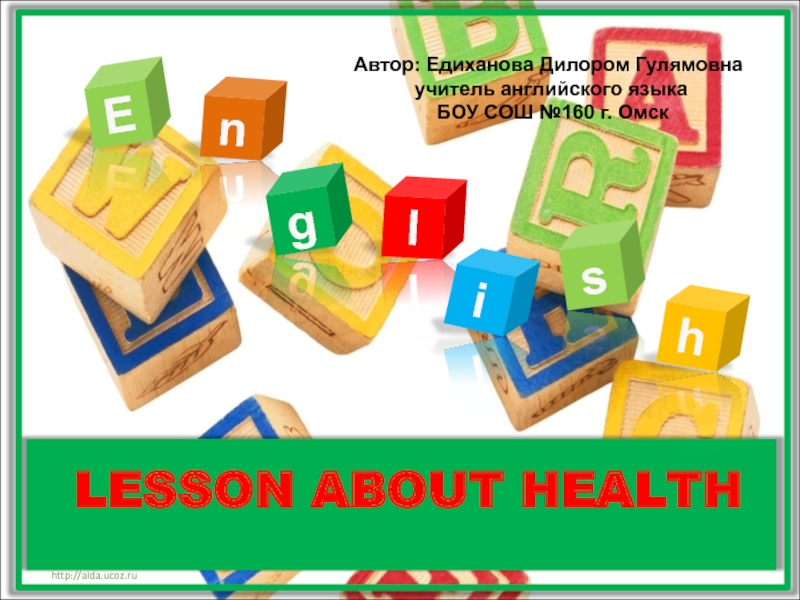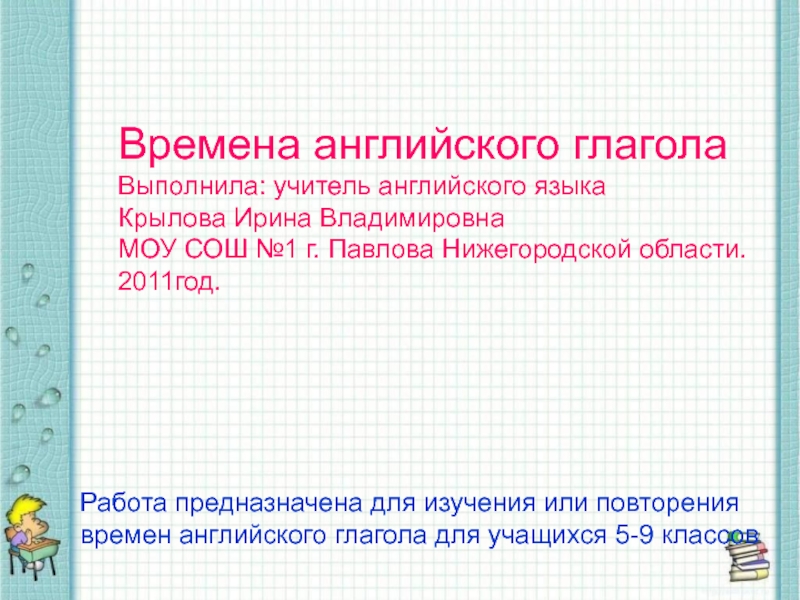Разделы презентаций
- Разное
- Английский язык
- Астрономия
- Алгебра
- Биология
- География
- Геометрия
- Детские презентации
- Информатика
- История
- Литература
- Математика
- Медицина
- Менеджмент
- Музыка
- МХК
- Немецкий язык
- ОБЖ
- Обществознание
- Окружающий мир
- Педагогика
- Русский язык
- Технология
- Физика
- Философия
- Химия
- Шаблоны, картинки для презентаций
- Экология
- Экономика
- Юриспруденция
The Earth in danger.
Содержание
- 1. The Earth in danger.
- 2. It's Our Home Earth is the
- 3. HumanityHumanity always have needs, that must be
- 4. Air emissionsAir pollution is the introduction of
- 5. Wastewater Wastewater, also written
- 6. Municipal solid waste Municipal solid waste
- 7. Oil spill An oil
- 8. The Earth is in dangerThe Earth is
- 9. Скачать презентанцию
It's Our Home Earth is the third planet from the Sun, the densest planet in the Solar System, the largest of the Solar System's four terrestrial planets, and the only
Слайды и текст этой презентации
Слайд 1The Earth is in danger
We must save the planet
Prepared
by the pupil of 8th-A form Serhiy Marchuk
Слайд 2It's Our Home
Earth is the third planet from
the Sun, the densest planet in the Solar System, the
largest of the Solar System's four terrestrial planets, and the only astronomical object known to harbor life.Different people, with different traditions, with different culture, with different views on life, but we are inhabitants of one planet- Earth.
Слайд 3Humanity
Humanity always have needs, that must be satisfied. There was
a need for deforestation, mining electricity, food. This has led
to environmental pollution. Further contamination can lead to environmental disasterСлайд 4Air emissions
Air pollution is the introduction of particulates, biological molecules,
or other harmful materials into Earth's atmosphere, causing diseases, death
to humans, damage to other living organisms such as animals and food crops, or the natural or built environment.Indoor air pollution and urban air quality are listed as two of the world's worst toxic pollution problems in the 2008 Blacksmith Institute World's Worst Polluted Places report. According to the 2014 WHO report, air pollution in 2012 caused the deaths of around 7 million people worldwide.
Слайд 5Wastewater
Wastewater, also written as waste water,
is any water that has been adversely affected in quality
by anthropogenic influence. Wastewater can originate from a combination of domestic, industrial, commercial or agricultural activities, surface runoff or stormwater, and from sewer inflow or infiltration.Municipal wastewater (also called sewage) is usually conveyed in a combined sewer or sanitary sewer, and treated at a wastewater treatment plant. Treated wastewater is discharged into receiving water via an effluent pipe. Wastewaters generated in areas without access to centralized sewer systems rely on on-site wastewater systems. These typically comprise a septic tank, drain field, and optionally an on-site treatment unit.
Слайд 6
Municipal solid waste
Municipal solid waste (MSW), commonly known as trash
or garbage in the United States and as refuse or
rubbish in Britain, is a waste type consisting of everyday items that are discarded by the public. "Garbage" can also refer specifically to food waste, as in a garbage disposal; the two are sometimes collected separately.The composition of municipal solid waste varies greatly from municipality to municipality (country to country) and changes significantly with time. In municipalities (countries) which have a well developed waste recycling system, the waste stream consists mainly of intractable wastes such as plastic film, and unrecyclable packaging materials. At the start of the 20th century, the majority of domestic waste (53%) in the UK consisted of coal ash from open fires.
